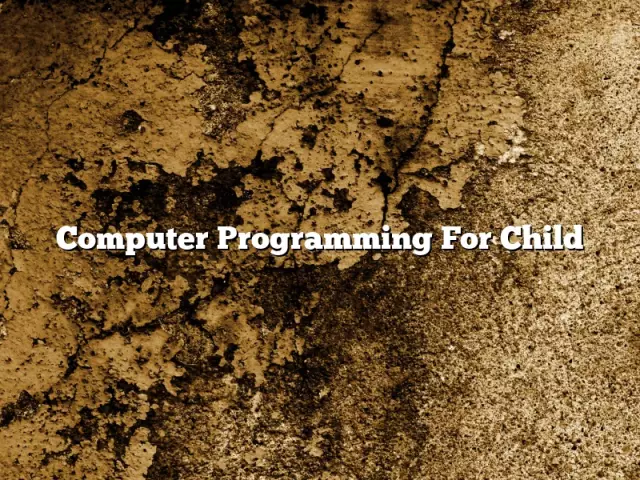- Author Rachel Wainwright wainwright@abchealthonline.com.
- Public 2023-12-15 07:39.
- Last modified 2025-11-02 20:14.
Child and computer: simple safety rules
Our lifestyle is changing rapidly: ten years ago, not every family had a personal computer, and today few people can do without this device. Of course, children master the computer with might and main: not only play games on it, but also study, and write school papers, and look for the necessary information.

Source: depositphotos.com
Some children learn to read and write faster with a computer keyboard than with a pen. So can children be allowed to be at the computer for as long as they want? After all, adults themselves often work with this device all day long without loss of health. Maybe it's time to revise the old standards?
Dangers of the computer to children
Traditionally, doctors have feared the effects of computers on children's health for several reasons.
- This is a big burden on vision.
- The child is in the same position for a long time.
- The computer affects the psyche.
- Harmful radiation is emitted from the computer.
Let's take a closer look at each of these negative factors.
Blurred vision
Like a TV, a computer really does not have the best effect on a child's vision. Moreover, when watching cartoons or TV shows, the frame rate is high (which reduces the load), and in computer games it is much less frequent. In order not to strain your eyes, you need to follow some rules when arranging a workplace where the child will sit. The top edge of the monitor should be at or slightly below eye level. The distance from the eyes to the monitor must be at least 50 cm. The brightness of the monitor must be adjusted correctly - you can neither reduce it to a minimum, nor increase it too much.
Even adults should rest 5-10 minutes after every hour of computer work. For the student, breaks are recommended every 15 minutes.
To keep your eyes from drying out, you periodically need to close them and rotate your eyes under closed eyelids. It is very useful to teach the child the basic exercises included in the complex of gymnastics for the eyes: look into the distance and at the bridge of the nose, look left, right, up and down, without turning your head. This will help your eyes rest. Also, in the workplace area, you can hang a sheet of blue, green or yellow cardboard. It will become a resting area for the eyes after working at the computer. You need to look at the sheet for 10-15 minutes from a distance of 30-40 cm, without straining your eyes.
As for the time spent at the computer, ophthalmologists insist on clear limits. Until 3 years old, you should not show a computer to a kid at all, from 3 to 5 years old - allow him to be behind it for up to 15 minutes, at 6-7 years old - up to half an hour. At 9-10 years old, if necessary, you can increase the time in front of the monitor to 1-1.5 hours, but with frequent breaks to rest the eyes.
Static pose
The most common complaints from people who work at a computer are associated with increased fatigue and headaches. All this can be expected for a child - after all, a long stay in one position leads to overstrain of the neck muscles and a deterioration in the blood supply to the brain. In addition, pain and numbness of fingers or hands can become a problem - this is due to the same type of hand movements when working at a computer.
To avoid unpleasant consequences, again, you need to properly equip the workplace. The keyboard should be located below the table, so you should give preference to standard models with a separate system unit and monitor, rather than laptops - then the keyboard can be placed on a special pull-out shelf. Parents need to make sure that the child sits at the desk with an even posture and takes breaks from work.
Impact on the psyche
Doctors have long sounded the alarm: spending many hours at the computer has a very negative effect on the psyche of children. Parents should watch what games the child is playing and how hard it is to experience the restrictions imposed on the use of a personal computer. If a student does not want to go for a walk, but is at home all day, sitting at the computer at the slightest opportunity, we can assume that he is developing computer addiction. To get a child out of the state of loss of connection with reality, the help of a psychologist is often required.

Source: depositphotos.com
Parents need to be wary if the child begins to sleep poorly - falls asleep for a long time, wakes up at night, becomes depressed or, conversely, too excitable. Absent-mindedness, lack of concentration, increased fatigue are also bad signs. In addition, a child with computer addiction may have problems with appetite - either forgets to eat, or eats too much without leaving the monitor.
Radiation
This is the least evil a computer can bring. With a properly organized workplace (proper placement of the monitor and the system unit), the radiation of modern computers affects the user minimally.
Computer benefits
With the help of this device, it is possible to activate the development of the child, and there is hardly a complete replacement. After all, electronic educational games are always available, free, and do not require storage space. There are many games aimed at developing logic and attention, imaginative thinking, and coordination of movements. Teaching literacy, foreign languages, mathematics and other subjects - all this allows you to engage your child with tangible benefits for him. What can we say about the information necessary for learning, which is so much on the Web …
A sensible approach to organizing a child's computer education will help avoid health problems. But parental control of the time spent by the child at the monitor is absolutely necessary: even the most obedient toddler is tempted to play once again, while the parents do not see it.
YouTube video related to the article:

Maria Kulkes Medical journalist About the author
Education: First Moscow State Medical University named after I. M. Sechenov, specialty "General Medicine".
Found a mistake in the text? Select it and press Ctrl + Enter.






